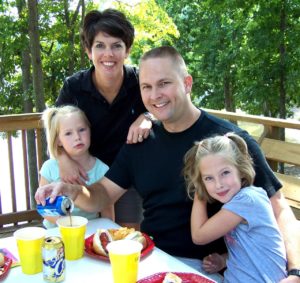What are the Signs of Codependency I Should Watch For?
When a client describes him or herself as a “people pleaser,” an alarm bell might go off in a counselor’s mind. That’s not because codependents are psychologically disturbed; instead, it’s because signs of codependency can subtly wreak havoc in relationships.
 If someone has codependent behaviors, this equates to a lack of boundaries, and a client who is struggling in this area will need help working through issues of self-esteem and personal identity. Newport Beach Christian Counseling offers the support needed to address these challenges.
If someone has codependent behaviors, this equates to a lack of boundaries, and a client who is struggling in this area will need help working through issues of self-esteem and personal identity. Newport Beach Christian Counseling offers the support needed to address these challenges.
Have you heard of the book Codependent No More? Melody Beattie wrote this landmark primer on codependency in the late 1980s, and this is how she describes codependency: “A codependent person is one who has let another person’s behavior affect him or her, and who is obsessed with controlling that person’s behavior.” (Codependent No More, 1992 ed.)
We’ll get into the details later, but for now, remember the key points of codependency:
- Being overly affected by other people’s actions.
- Being obsessed with controlling other people’s actions.
This description might sound confusing at first because codependents do have people-pleasing behaviors; they don’t always seem controlling at first glance because they’re not angry, powerful people. But, as we will see, codependency is rooted in fear, and when someone feels afraid and helpless, they often grasp for control as a way to feel safe.
Pia Mellody has also researched codependency extensively. She breaks down the specific areas codependents struggle with:
- Having healthy self-esteem.
- Setting healthy boundaries.
- Being confident of their reality and able to express their perspective.
- Taking responsibility for their own needs and desires.
- Experiencing and expressing their reality moderately.
Beattie writes this about self-esteem and codependency:
If codependents have any kind of esteem, it is not self-esteem but other-esteem; which is based on external things such as how one looks, how much money they make, who they know, what kind of car they drive, what kind of job they have, how well their children perform, how powerful and important or attractive their spouse is, the degrees they have earned, how well they perform at activities in which others value, etc. – Facing Codependence, p. 9
In moderation, it’s natural to enjoy our accomplishments, but if you derive your worth from impressing other people or winning their approval, you don’t have healthy self-esteem. You have other-esteem. Does this sound familiar, possibly for you, or for many people you know? Codependency is quite common.
 Social media tends to magnify underlying personality issues such as narcissism or codependency. We can see that while using social media, everyone is mostly competing to be recognized, “liked,” and “favorited” by others. Accomplishments, material possessions, and experiences are all fodder for public admiration.
Social media tends to magnify underlying personality issues such as narcissism or codependency. We can see that while using social media, everyone is mostly competing to be recognized, “liked,” and “favorited” by others. Accomplishments, material possessions, and experiences are all fodder for public admiration.
Social media can pose dangers for everyone, and if you are prone to codependency, you might notice that social media magnifies your drive to find your value in what others think. As Christian counselors, our goal for our clients is a life of healthy interdependence, not codependence or complete independence.
David Richo, the author of How to Be an Adult, writes:
In a healthy person, loyalty has its limits and unconditional love can coexist with conditional involvement. Unconditional does not, after all, mean uncritical. You can both love someone unconditionally and place conditions on your interactions to protect your own boundaries. It is building a functional healthy ego to relate intimately to others with full and generous openness while your own wholeness still remains inviolate. It is a great boost to self-esteem to be in touch and intact. This is adult interdependence. – How to Be an Adult, 1991, p. 58
A clear view of healthy relationships reveals that love and approval are not always synonymous. You can love someone unconditionally, yet not approve of their actions, just as God loves sinners.
Boundaries and Codependency
The word boundaries can turn into a catchphrase that’s thrown around when people don’t like how others are treating them. But, boundaries aren’t a way to control other people. They are the freedom we have as humans to make decisions for our protection and autonomy. Based on our discretion and other people’s choices, we decide our level of participation with them.
When you lock your doors at night, you’re not insulting your neighbors, or controlling them. You’re protecting yourself and what’s inside your house.
Boundaries are similar to locking a door. They help us delineate what belongs to us, and what belongs to other people, and how we can peacefully coexist while protecting our property. As a human, your mind, heart, soul, and body are your “property,” and boundaries are meant to help you thrive and to prevent potential violations of your rights and autonomy.
So as opposed to being a form of control, boundaries are the ultimate admission that we can’t control other people. But, we can proactively create a healthy environment for ourselves. In our relationships, we can observe others’ choices and modify our behavior as needed – acknowledging that we can’t control their actions, only our own.
By reacting in a way that preserves our health and freedom, we’re not overly attached to the other person’s choices. That’s not to say we won’t be hurt or feel emotional pain, but we experience hurt and pain and express it without trying to force the other person to change.
On boundaries, David Richo writes: “I know I have lost my boundaries and become codependent when: I don’t let go of what doesn’t work, and it feels like I cannot let go of what could possibly/hopefully work. Codependency is unconditional love for someone else that has turned against oneself.” (p. 59)
So, why are we talking about boundaries? Because this concept intertwines with codependency. Codependency, low self-worth, and poor boundaries always coexist. As we mature from childhood in adulthood, we should find our value and worth in God as believers. We depend on him to meet our needs.
On a human level, we recognize that we are responsible for taking care of ourselves. We do not expect others to do it for us, and we do not make ourselves accountable for other adults. We have many responsibilities to other people, but we are only responsible for ourselves.
Hope for Codependents
 If you recognize codependent traits in yourself, don’t lose hope. You are not defective or inadequate; you just need to work through the heart issues and learn healthier ways of relating to others.
If you recognize codependent traits in yourself, don’t lose hope. You are not defective or inadequate; you just need to work through the heart issues and learn healthier ways of relating to others.
Codependency is often learned as children in our families of origin, when we witness poor boundaries, enmeshment, low self-esteem, enabling, or other unhealthy relational patterns. Many codependents grew up with a parent struggling with addiction.
In its original definition, codependency described the relationship between an alcoholic and an enabler, but mental health experts realized that many relationships display these traits even if there is no substance addiction. Although you may have developed these behaviors to survive, they are now, in turn, preventing you from living a full and healthy life.
So, what exactly are healthy boundaries? In How to Be an Adult (59-60), Richo provides a helpful summary of how to set boundaries. Here are some thoughts, based on his summary:
- Learn to ask directly for what you want. Pursue your good desires. Refuse to live in fear, isolation, or bitterness.
- Care for yourself and receive God’s care for you. Ask God for wisdom and discernment in managing your relationships. Work on developing a robust support system that can give you feedback when needed, whether that be a counselor, friends, or a group that you join.
- Observe, don’t absorb. Practice “watching” how other people treat you and letting that inform what will you accept from them. This stance allows you to act instead of reacting.
- Acknowledge that you can’t change others. Instead of basing your relationship on hopes for the future, decide how much you can handle in a hurting and disappointing relationship. How many lies and betrayals will you accept? You are your advocate.
- Trust God alone. Only he is worthy of our complete devotion and trust. All humans will fail us, some more destructively than others. We will fail the people in our lives too. Finding security in the Lord helps us to work through hurt from others without letting it define us.
Good relationships involve an investment in the lives of others, a giving of power, without us diminishing ourselves in any way. We voluntarily enter vulnerability freely as lovers, not as helpless victims. In an unhealthy relationship dynamic, we fail to protect ourselves and live from a place of reaction versus acting on behalf of ourselves.
On the other hand, in unhealthy relationships, we don’t have a sense of self-protection, and instead of choosing how to act, we merely react to how others treat us.
Common Signs of Codependency
 Not all mental health professionals agree on how codependency presents. But there do tend to be some common symptoms. The following list is adapted from Codependent No More. A person with codependency:
Not all mental health professionals agree on how codependency presents. But there do tend to be some common symptoms. The following list is adapted from Codependent No More. A person with codependency:
- Takes responsibility for how other people feel, think, and behave.
- Finds their sense of worth in “rescuing” people from the consequences of their own decisions.
- Says yes when they would rather say no, to meet someone’s expectations instead of doing what they would rather do.
- Neglects their own needs and lives to please others.
- Feels insecure and guilty if someone else serves them in some way.
- Notices how often they give to others and how rarely people give to them and feels sad about it.
- Is attracted to needy people.
- Finds that other needy people seem drawn to them.
- Feels restless or unsatisfied in the absence of a crisis or a problem to solve.
What are the outward signs of someone who has low self-worth? According to Beattie, a codependent person with low self-esteem:
- Feels hopeless, like nothing good will happen to them.
- Is indecisive.
- Has survived abuse, neglect, abandonment, or addiction.
- Fears rejection.
- Rejects compliments.
- Probably comes from a dysfunctional family, but may deny it.
- Feels unworthy of love, so settles for being needed.
- Puts others first, often to the detriment of their own needs.
- Has a lot of negative self-talk.
- Takes things personally.
- Feels guilty for doing something nice for themselves.
- Blames themselves for things that are not their responsibility.
Where is Christ in Codependency?
In the gospel of John, Jesus promised his disciples that he would bring them abundant life. As Christians, we don’t have to live a life of survival, or barely getting by. No matter what trials we face, we can look to Christ for unconditional love. When we know how much he loves us, we are free to love others from a place of abundance instead of lack.
When Jesus taught the two greatest commandments, loving God and loving others, he added: “as you love yourself.” This teaching assumes that we have a healthy perspective on our worth and know that God loves us; and, moreover, it implies that we are to love ourselves well and love others the same.
If you feel deprived of love or acceptance, you’ll always be looking for those things in human relationships. If you know Jesus Christ richly loves you, you won’t have to feel so desperate for other people to assure you of your worth.
If reading these descriptions of codependency has opened your eyes to the possibility that you might be in a codependent relationship, please don’t hesitate to contact one of our Christian Counselors at Newport Beach Christian Counseling. We are here to help you work through your foundations of love, worth, and value while encouraging you to pursue healthy boundaries and bonds in your relationships. And above all, we want to help you realize the fullness of your worth in Christ.
“In Love”, Courtesy of Henry Washington, Pixabay.com; CC0 License; “Social Media”, Courtesy of Adrianna Calvo, Pexels.com, CC0 License; “Warmsweaterday”, Courtesy of Anne-Marie Pronk, Unsplash.com, CC0 License; “Tarnica Beech,” courtesy of jarekgrafik, pixabay.com, CC0 Public Domain License

 Your nonverbal communication says more than the words coming out of your mouth. Your facial expression, the look in your eye, the tone of your voice, and your body language speak volumes.
Your nonverbal communication says more than the words coming out of your mouth. Your facial expression, the look in your eye, the tone of your voice, and your body language speak volumes. If you’re feeling upset when you start a conversation, an argument will most likely follow, and effective communication won’t happen. The first thing to assess isn’t the topic you want to address, but how you’re feeling right now. Are you anxious? Is your stomach in knots? Are you angry? Is your heart racing?
If you’re feeling upset when you start a conversation, an argument will most likely follow, and effective communication won’t happen. The first thing to assess isn’t the topic you want to address, but how you’re feeling right now. Are you anxious? Is your stomach in knots? Are you angry? Is your heart racing? Some people, especially those with avoidant conflict styles, dread having a difficult conversation, but it’s important to have them anyway. If you’re afraid of how the other person will respond when you start the discussion, you can use framing to share your fears. “I need to talk to you about this, but I’m afraid you’re going to get angry or stonewall me.”
Some people, especially those with avoidant conflict styles, dread having a difficult conversation, but it’s important to have them anyway. If you’re afraid of how the other person will respond when you start the discussion, you can use framing to share your fears. “I need to talk to you about this, but I’m afraid you’re going to get angry or stonewall me.” Most emotional abuse seems to accompany parental neglect or emotional assault in some form or another, but because each person is unique, therapy can be different for each patient. Everyone is wired in an individual way, so an abusive history will impact each individual differently.
Most emotional abuse seems to accompany parental neglect or emotional assault in some form or another, but because each person is unique, therapy can be different for each patient. Everyone is wired in an individual way, so an abusive history will impact each individual differently. If the person or persons we trust most are abusive or belittling toward us, we begin to believe the words, feeling that the abuse is deserved. A trusted person who yells, threatens, or shames us on a regular basis will eventually teach us that only negative responses make sense. The abuse has come full circle, and the abused begin to validate the toxic information by believing it is deserved. Some of the abusive words can include some of the following:
If the person or persons we trust most are abusive or belittling toward us, we begin to believe the words, feeling that the abuse is deserved. A trusted person who yells, threatens, or shames us on a regular basis will eventually teach us that only negative responses make sense. The abuse has come full circle, and the abused begin to validate the toxic information by believing it is deserved. Some of the abusive words can include some of the following: Without even physically touching the victim, the abuser has a powerful hold on the abused that can leave long-term damage. Emotional maturity suffers, and the victims find themselves powerless. Emotional abuse is devastating and much harder to recognize than physical abuse. There is rarely outward proof of the situation, like bruises or scars, so it can be explained away as just in the imagination.
Without even physically touching the victim, the abuser has a powerful hold on the abused that can leave long-term damage. Emotional maturity suffers, and the victims find themselves powerless. Emotional abuse is devastating and much harder to recognize than physical abuse. There is rarely outward proof of the situation, like bruises or scars, so it can be explained away as just in the imagination. Realizing that they are continuing the legacy of abuse to new victims, the next step is when healing needs to begin. This is when finding a mental health professional who can undo the damage of all of the past traumas. Taking into consideration how the actions of the victim later in life will damage others, everyone needs to be involved in the recovery from the cycle of abuse.
Realizing that they are continuing the legacy of abuse to new victims, the next step is when healing needs to begin. This is when finding a mental health professional who can undo the damage of all of the past traumas. Taking into consideration how the actions of the victim later in life will damage others, everyone needs to be involved in the recovery from the cycle of abuse. By reading this article you’re taking the first step in what can be a journey of healing and hope. We’ll discuss different types of family counselors, how to select one who’s right for you, and how to budget for counseling. Take the time to consider each point in the selection process, and you’ll be equipped to make an informed decision.
By reading this article you’re taking the first step in what can be a journey of healing and hope. We’ll discuss different types of family counselors, how to select one who’s right for you, and how to budget for counseling. Take the time to consider each point in the selection process, and you’ll be equipped to make an informed decision. Behavior intervention applies to children who are struggling with problem behaviors, or to adults who are behaving inappropriately either in public or at home. In the family therapy setting, parents and the child will work with the counselor to identify unacceptable behaviors, set boundaries, and create rewards systems, along with other helpful skills.
Behavior intervention applies to children who are struggling with problem behaviors, or to adults who are behaving inappropriately either in public or at home. In the family therapy setting, parents and the child will work with the counselor to identify unacceptable behaviors, set boundaries, and create rewards systems, along with other helpful skills. Children going through puberty or experiencing life stress or mental health issues may struggle to have a good relationship with their parents. They may exhibit disrespect and dislike. Parents also deal with life stressors, mental health issues, and other factors that can make positive parenting difficult.
Children going through puberty or experiencing life stress or mental health issues may struggle to have a good relationship with their parents. They may exhibit disrespect and dislike. Parents also deal with life stressors, mental health issues, and other factors that can make positive parenting difficult. First, consider the value you place on therapy and the perspective that it can preventative medicine for your family relationships. Yes, therapy is expensive, but as counselors, we truly believe it’s worth it.
First, consider the value you place on therapy and the perspective that it can preventative medicine for your family relationships. Yes, therapy is expensive, but as counselors, we truly believe it’s worth it. Their arguments weren’t healthy. They would begin small and escalate to nasty fights filled with loud outbursts. It usually ended with Sarah shouting, while Zach left. Sarah felt dismissed and ignored by Zach, which irritated her, while Zach felt disrespected and was upset because Sarah would stew on things and then explode.
Their arguments weren’t healthy. They would begin small and escalate to nasty fights filled with loud outbursts. It usually ended with Sarah shouting, while Zach left. Sarah felt dismissed and ignored by Zach, which irritated her, while Zach felt disrespected and was upset because Sarah would stew on things and then explode. Psychology Today says “Emotional intelligence is the ability to identify and manage your own emotions and the emotions of others. It is generally said to include three skills: emotional awareness; the ability to harness emotions and apply them to tasks like thinking and problem solving; and the ability to manage emotions, which includes regulating your own emotions and cheering up or calming down other people.” (https://www.psychologytoday.com/us/basics/emotional-intelligence)
Psychology Today says “Emotional intelligence is the ability to identify and manage your own emotions and the emotions of others. It is generally said to include three skills: emotional awareness; the ability to harness emotions and apply them to tasks like thinking and problem solving; and the ability to manage emotions, which includes regulating your own emotions and cheering up or calming down other people.” (https://www.psychologytoday.com/us/basics/emotional-intelligence) People who are habitually aggressive tend to fundamentally misunderstand what it means to be assertive. Specifically, they tend to confuse assertiveness with aggression and think they already are acting assertively. This is frequently a mistaken impression, however.
People who are habitually aggressive tend to fundamentally misunderstand what it means to be assertive. Specifically, they tend to confuse assertiveness with aggression and think they already are acting assertively. This is frequently a mistaken impression, however. Refusing to accept or recognize personal behavior in a conflict is an obvious sign that the anger is not being dealt with well. Abusive behavior includes disgust directed at an individual rather than a problem, yelling, disrespectful speech, and physical contact, like hitting or kicking.
Refusing to accept or recognize personal behavior in a conflict is an obvious sign that the anger is not being dealt with well. Abusive behavior includes disgust directed at an individual rather than a problem, yelling, disrespectful speech, and physical contact, like hitting or kicking. A codependent is someone who seeks out, consciously or even subconsciously, one-sided relationships that are oftentimes emotionally damaging and possibly even abusive. In this kind of relationship, the codependent usually tries to keep the other person happy by sacrificing personal time, wants, or needs. This “other person” is usually the spouse, but it may also be a parent, sibling, child, colleague, or a close friend.
A codependent is someone who seeks out, consciously or even subconsciously, one-sided relationships that are oftentimes emotionally damaging and possibly even abusive. In this kind of relationship, the codependent usually tries to keep the other person happy by sacrificing personal time, wants, or needs. This “other person” is usually the spouse, but it may also be a parent, sibling, child, colleague, or a close friend. Other unhealthy traits of a codependent include low self-esteem, constant fear of abandonment, and an uncertainty of who they really are. In fact, if a person has been a codependent for quite some time, they may have addictive behaviors or may be suffering from symptoms of major depression.
Other unhealthy traits of a codependent include low self-esteem, constant fear of abandonment, and an uncertainty of who they really are. In fact, if a person has been a codependent for quite some time, they may have addictive behaviors or may be suffering from symptoms of major depression. It is also possible that the codependent is afraid that the “other” will leave them, so they try to be a “good” wife, husband, or child. At work, there may be that fear of rejection by peers or their superiors, which causes the codependent to work extra hard, even if it is no longer healthy.
It is also possible that the codependent is afraid that the “other” will leave them, so they try to be a “good” wife, husband, or child. At work, there may be that fear of rejection by peers or their superiors, which causes the codependent to work extra hard, even if it is no longer healthy. As in all problems, the initial step is to acknowledge that there is a problem with codependency. Next, one must seek for help, since overcoming it on your own will be very difficult indeed.
As in all problems, the initial step is to acknowledge that there is a problem with codependency. Next, one must seek for help, since overcoming it on your own will be very difficult indeed. Emotional affairs aren’t often talked about but can be as disastrous to relationships as physical affairs would be. You might be asking yourself, “Are emotional affairs even real?”
Emotional affairs aren’t often talked about but can be as disastrous to relationships as physical affairs would be. You might be asking yourself, “Are emotional affairs even real?” Although you notice desires begin to arise, you tell yourself that you respect your marriage too much to jeopardize anything. As the months pass, you begin to celebrate special moments in your life with your friend at work exclusively.
Although you notice desires begin to arise, you tell yourself that you respect your marriage too much to jeopardize anything. As the months pass, you begin to celebrate special moments in your life with your friend at work exclusively. Now, that you have identified what’s happening as an emotional affair. The next step is to have a conversation with someone, admitting to the emotional affair.
Now, that you have identified what’s happening as an emotional affair. The next step is to have a conversation with someone, admitting to the emotional affair. After years of marriage, going through the same playbook can become tedious. Think of it like enjoying your favorite meal every single day. It might be your favorite, but over time you will get tired of eating the same dish, prepared the exact same way.
After years of marriage, going through the same playbook can become tedious. Think of it like enjoying your favorite meal every single day. It might be your favorite, but over time you will get tired of eating the same dish, prepared the exact same way. Fear can intensify as partners become more important to each other. Nobody wants to rock the boat by asking for certain things they like. It’s important to respect each other, but avoiding these conversations about specific preferences will only create a silent wedge in the relationship.
Fear can intensify as partners become more important to each other. Nobody wants to rock the boat by asking for certain things they like. It’s important to respect each other, but avoiding these conversations about specific preferences will only create a silent wedge in the relationship. What is something you would like in bed but are afraid to ask for? What is something you have wanted to try, but normally resist doing?
What is something you would like in bed but are afraid to ask for? What is something you have wanted to try, but normally resist doing? Insisting on hiding parts of yourself from your spouse will only cause tension in your marriage. In the end, both people must be willing to hear each other out and take a step of courage together.
Insisting on hiding parts of yourself from your spouse will only cause tension in your marriage. In the end, both people must be willing to hear each other out and take a step of courage together. God created us to be imaginative, but because of our sin natures we often use the gift of imagination for evil purposes, such as sexually depraved thoughts. By contrast, it’s vital for Christians to cultivate a healthy sexual thought life. If you’re married, this doesn’t mean repressing sexual thoughts; it means channeling them appropriately.
God created us to be imaginative, but because of our sin natures we often use the gift of imagination for evil purposes, such as sexually depraved thoughts. By contrast, it’s vital for Christians to cultivate a healthy sexual thought life. If you’re married, this doesn’t mean repressing sexual thoughts; it means channeling them appropriately. Again, it’s normal to simply recognize that someone is attractive, but it’s sin to allow that thought to turn into something more. This means you need to avoid “checking out” anyone other than your spouse.
Again, it’s normal to simply recognize that someone is attractive, but it’s sin to allow that thought to turn into something more. This means you need to avoid “checking out” anyone other than your spouse. The entertainment industry glamorizes illicit sex, yet often ignores the resulting fallout of heartache, sexually transmitted diseases, unintended pregnancy, broken families, and more.
The entertainment industry glamorizes illicit sex, yet often ignores the resulting fallout of heartache, sexually transmitted diseases, unintended pregnancy, broken families, and more. We all have physical flaws; don’t focus on your partner’s while fantasizing about perfection. “Continued fantasies about women with big breasts, or men with muscular shoulders, are stupid if your partner is small. The same can be said about not taking the energy to allow your mate to be erotically attractive to you and fantasizing that you are making love to someone else.” (79)
We all have physical flaws; don’t focus on your partner’s while fantasizing about perfection. “Continued fantasies about women with big breasts, or men with muscular shoulders, are stupid if your partner is small. The same can be said about not taking the energy to allow your mate to be erotically attractive to you and fantasizing that you are making love to someone else.” (79) If a child has endured consistent loss, all of those feelings and memories can be reignited in adulthood when triggered.
If a child has endured consistent loss, all of those feelings and memories can be reignited in adulthood when triggered. Fear of abandonment is involuntary. Because of life events that were out of your control, this fear has been instilled inside of you. Here are five symptoms that are associated with a fear of abandonment.
Fear of abandonment is involuntary. Because of life events that were out of your control, this fear has been instilled inside of you. Here are five symptoms that are associated with a fear of abandonment. When someone re-enacts trauma it’s a subconscious effort to resolve past trauma. This could manifest by being attracted to the “wrong” person who is noncommittal and hurtful. You begin to project your insecurities on those around you.
When someone re-enacts trauma it’s a subconscious effort to resolve past trauma. This could manifest by being attracted to the “wrong” person who is noncommittal and hurtful. You begin to project your insecurities on those around you. Shame and condemnation bombard you daily. An onslaught of thoughts around worthlessness fills your mind. Those who can relate to a fear of abandonment normally find themselves wanting to cling to people, yet wanting to avoid intimacy at the same time.
Shame and condemnation bombard you daily. An onslaught of thoughts around worthlessness fills your mind. Those who can relate to a fear of abandonment normally find themselves wanting to cling to people, yet wanting to avoid intimacy at the same time.